
Products
Fast, Reliable, Everywhere

Solutions
Efficient, Innovative EV Charging Solutions.
News
We are committed to the innovation and application of EV charging.

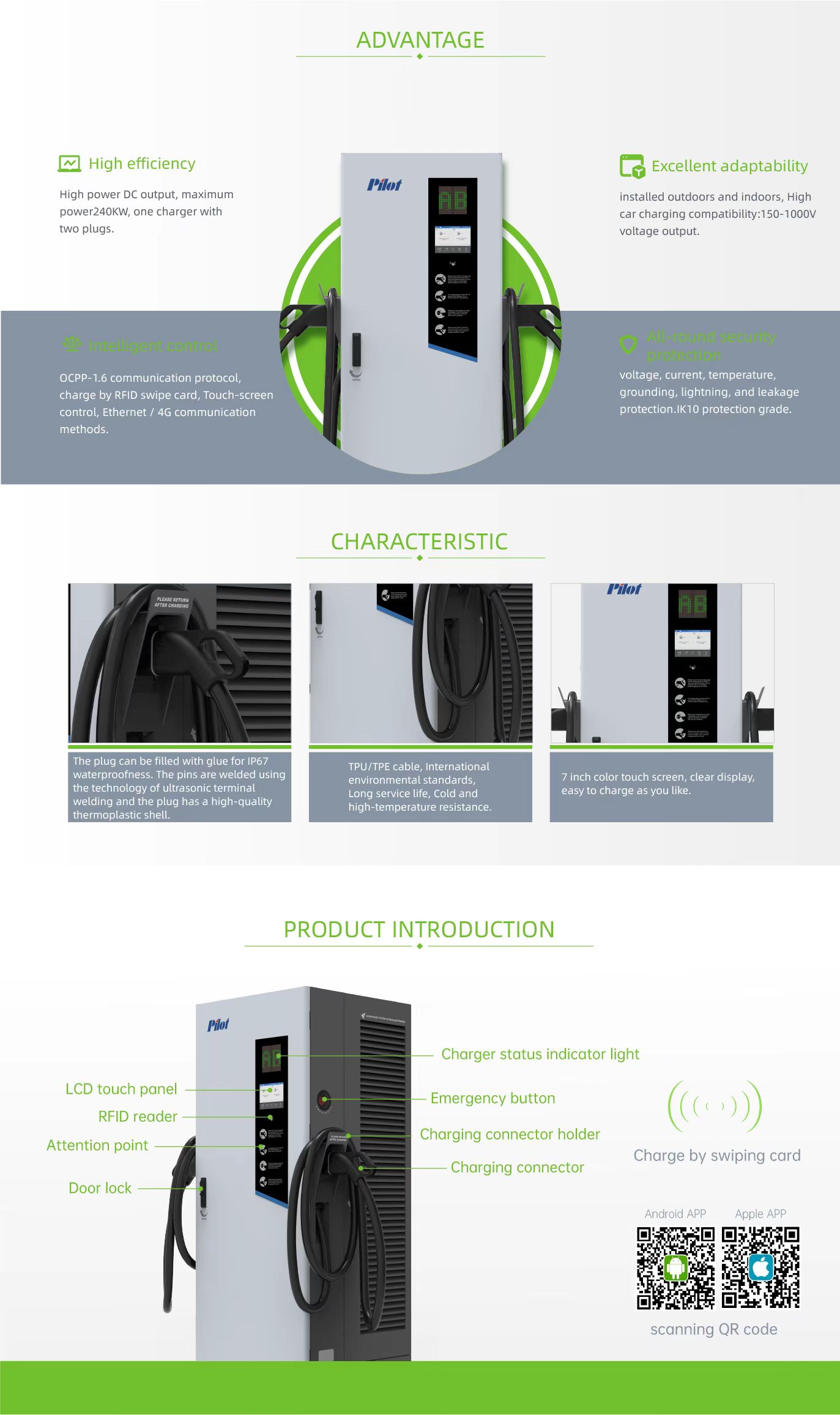
| Parameters / Model | PEVC3107E |
| Input | |
| Power Supply | 3P + N + PE |
| Rated Voltage | 400 VAC ± 15 % |
| Frequency | 50 / 60 Hz |
| THDi | ≤ 5 % |
| Efficiency | ≥ 95 % |
| Power Factor | ≥ 0.99 |
| Output | |
| Connector Type | CCS Combo 2 (opt. Combo 1) |
| Number of Output Ports | 2 |
| Output Voltage | 150 – 1000 V DC |
| Max. Output Current | 200 A DC |
| Output Power Rating | 100 – 240 kW (Max) |
| Output Voltage Accuracy | ≤ 0.5 % |
| Output Current Accuracy | ≤ ± 0.5 % |
| General | |
| Display | 7‑inch HMI, touchscreen |
| Payment Method | RFID Card, APP |
| Plug Cable Length | 5 m |
| Network Connection | Cellular (GSM/3G/4G) LAN 10/100 Base‑T Ethernet |
| Protocol | OCPP‑1.6J |
| Operating Noise Level | ≤ 60 dBA |
| Protection Level | IP54, IK10 |
| Enclosure | Galvanized steel |
| Place of Installation | Indoor / Outdoor |
| Product Dimensions (W × D × H) | 700 × 550 × 1800 mm |
| Package Dimensions (W × D × H) | 950 × 720 × 1950 mm |
| Standards | IEC 62196‑1 / ‑3, IEC 61851‑1 / ‑23 / ‑24 |
| Environmental parameters | |
| Operating Temperature | ‑30 ℃ ~ +50 ℃ |
| Storage Temperature | ‑40 ℃ ~ +75 ℃ |
| Altitude | ≤ 2000 m |
| Humidity | 5 % – 95 % RH, non‑condensing |

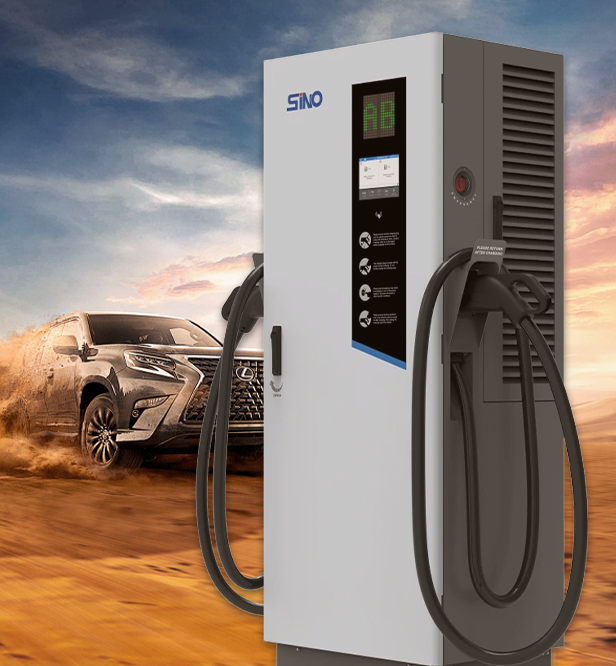
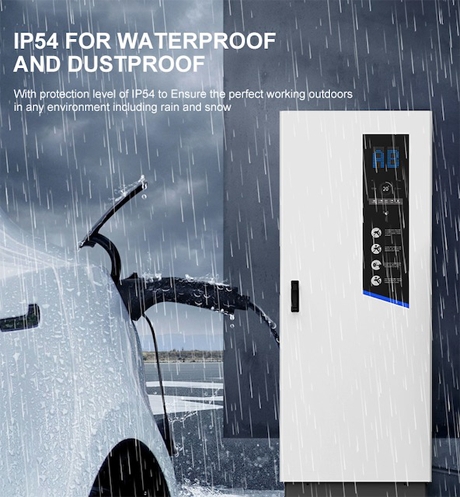
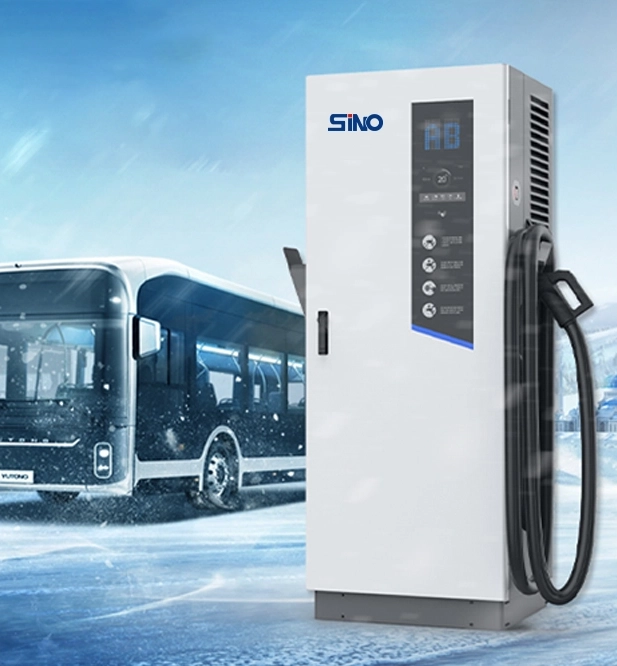
Drive revenue from EV chargers by setting charging fees or cross-selling other products and services while your customers charge. Offering EV charging in commercial spaces extends drivers’ dwell time, boosts spending, and engages more with your business.
Commercial charging powered by cheaper electricity, provides a cost edge over traditional fuels. This slashes carbon emissions, waste management, cleaning costs, and carbon-related taxes.
Let EV charging stations appear on public charging maps, not only catering to current customers but attracting new clients who discover your business online.
Enable drivers to charge regardless of the network or vehicle thanks to charging stations built on OCPP that are compatible with every EV.
Pilot designs to reduces costs associated with transport, installation, operation and maintenance to minimize total cost of ownership. With available power up to 480 kW, each dispenser can charge Max.8 EVs simultaneously, offering cost-efficient installation per kW and charging spot. Maintenance costs are reduced by remote monitoring and service.
EV chargers for business are designed to be weatherproof, shockproof, and can withstand 24/7 charging.
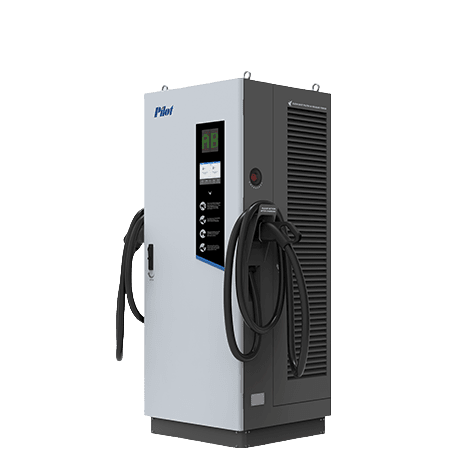
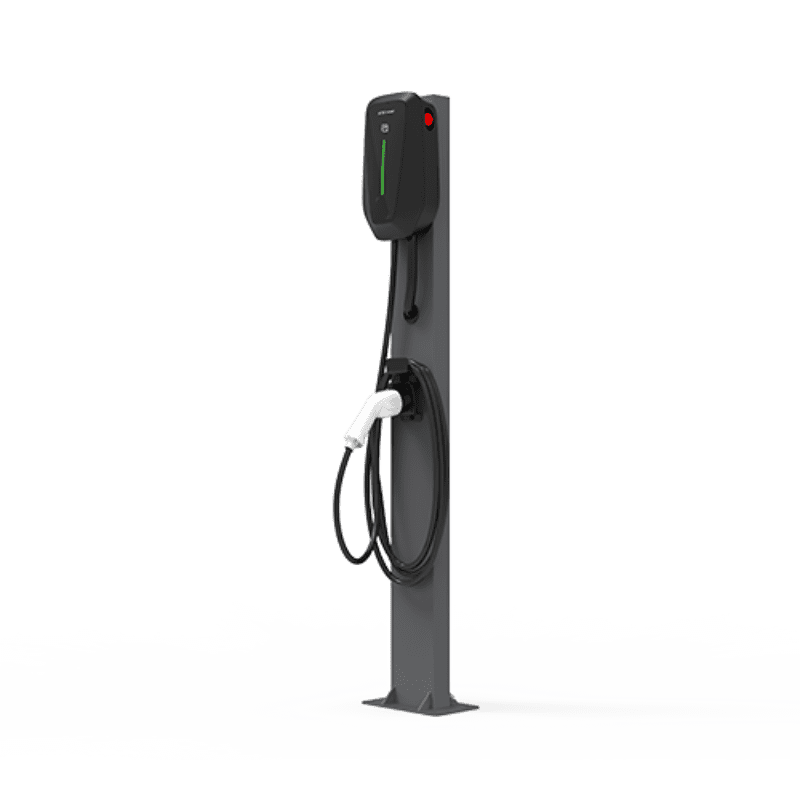
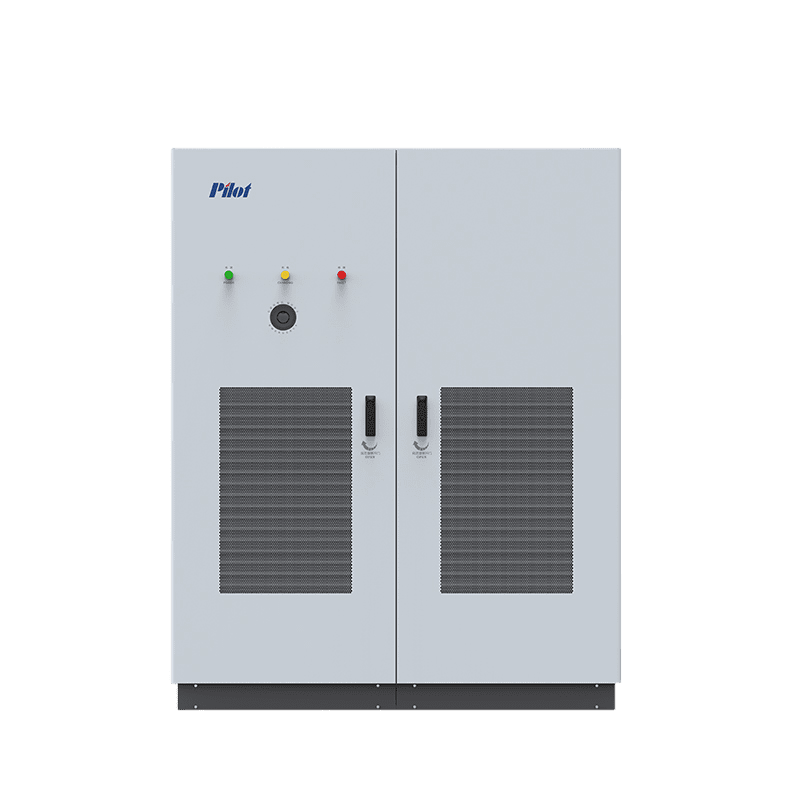
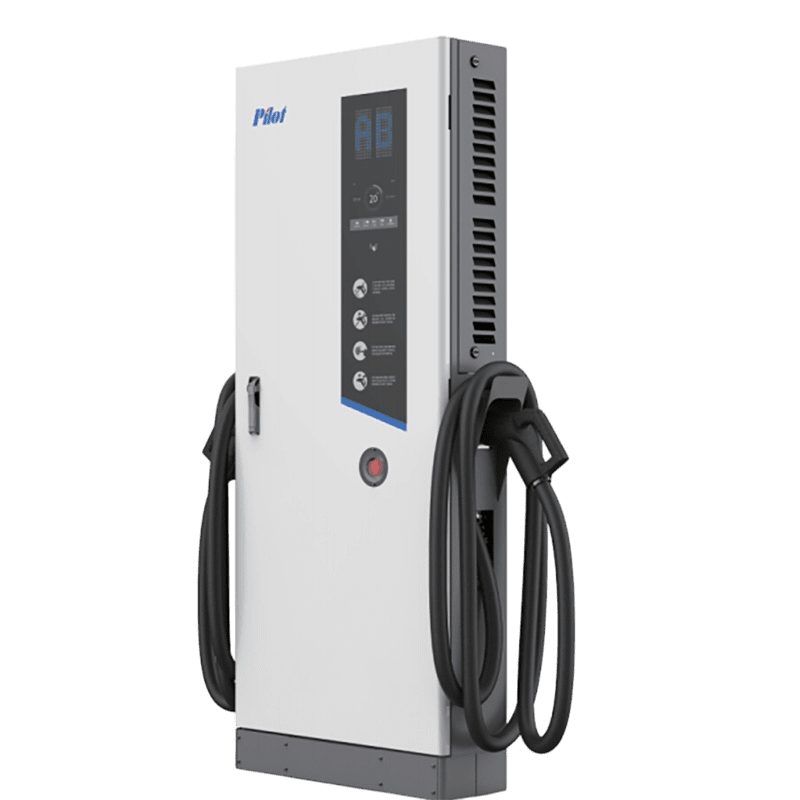
How can we help?